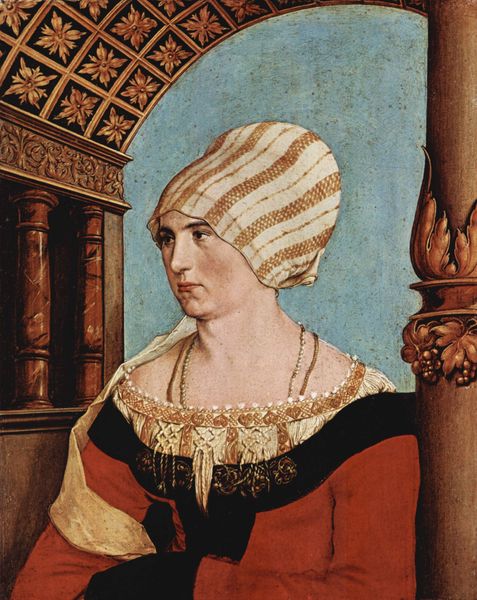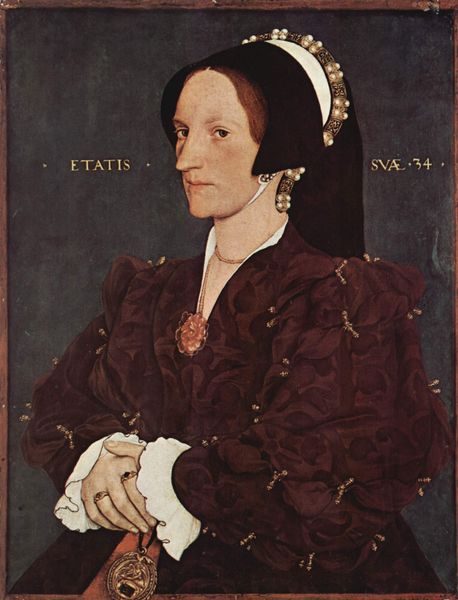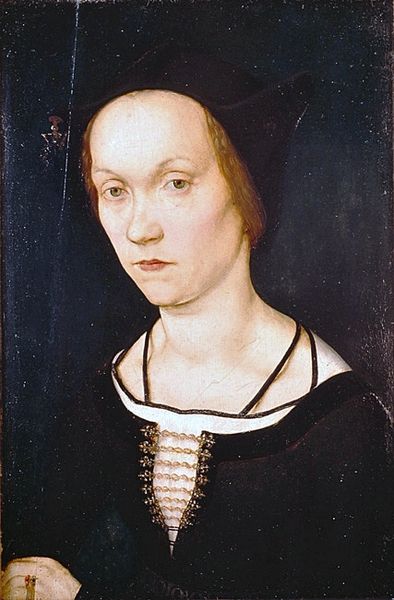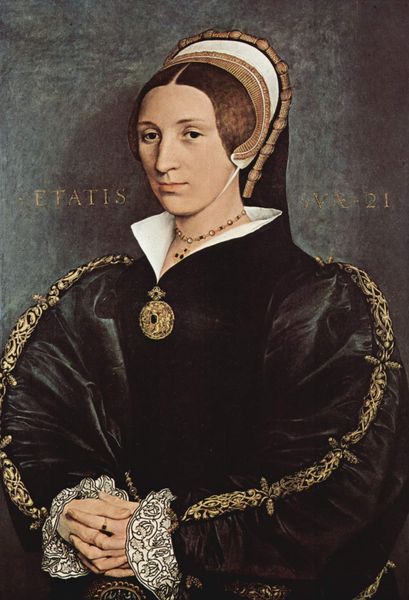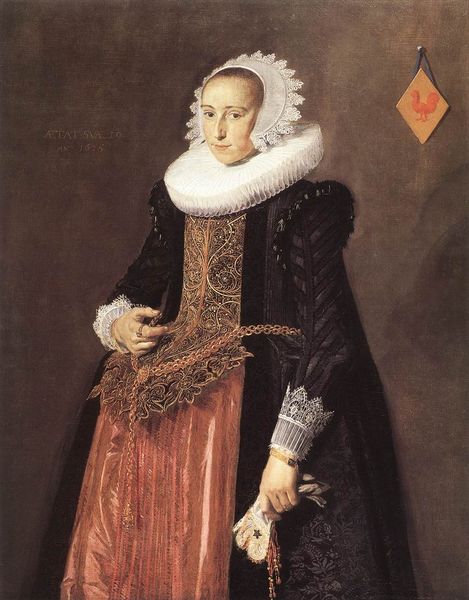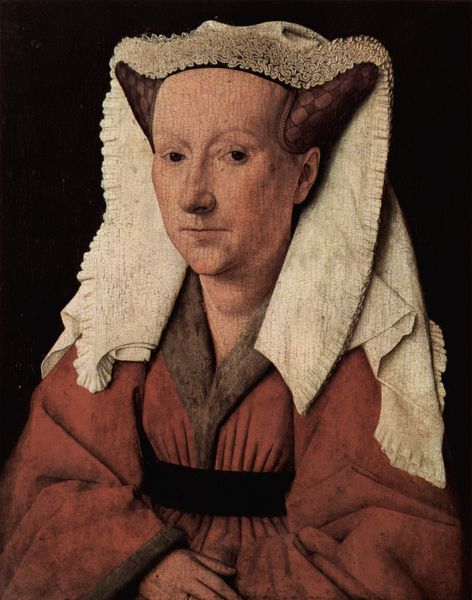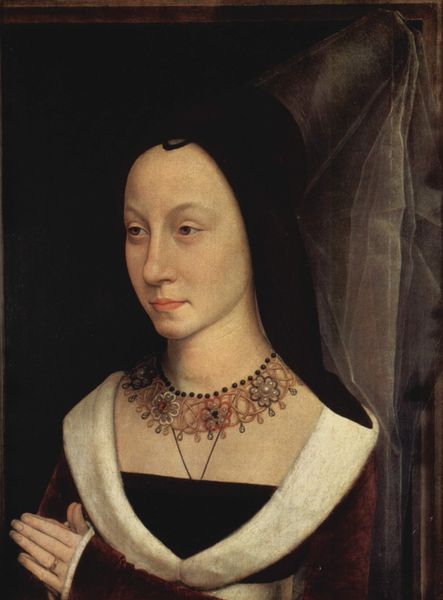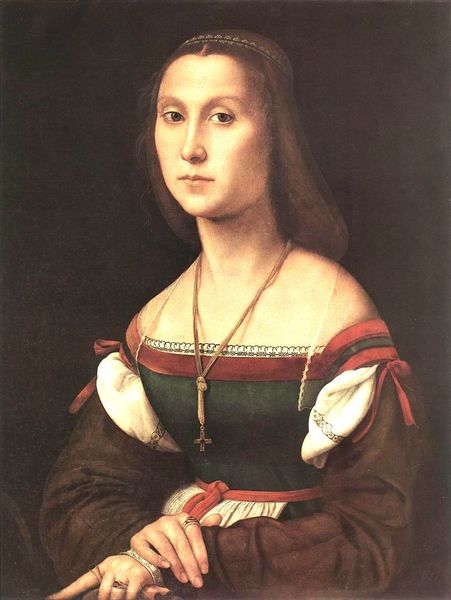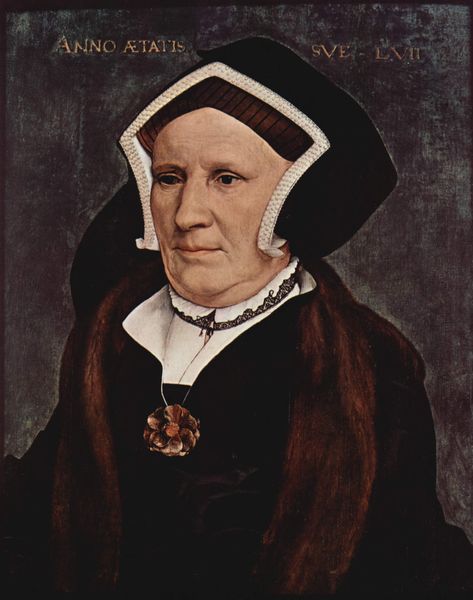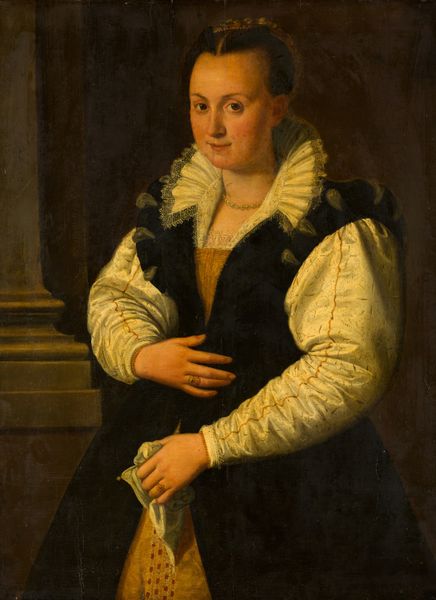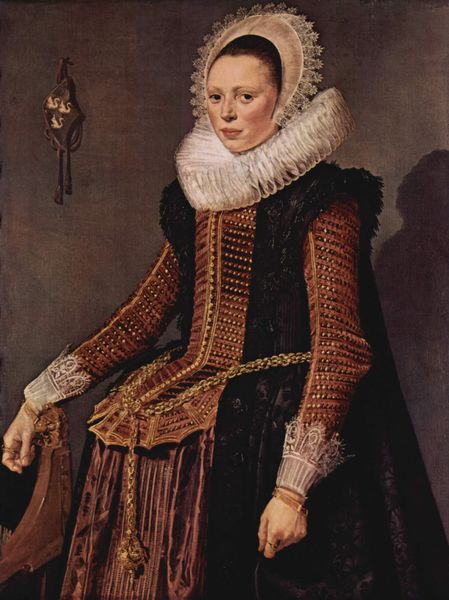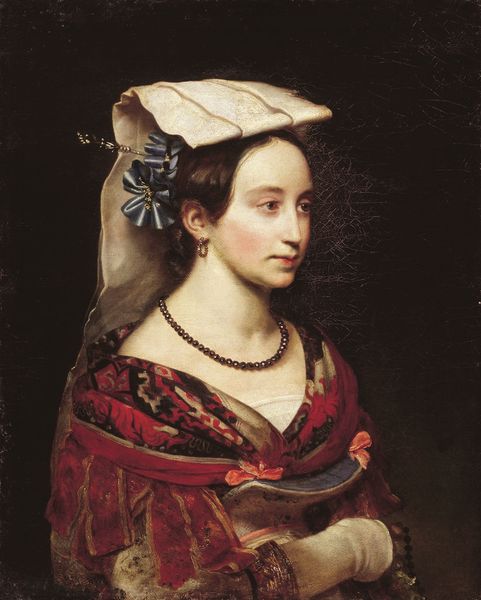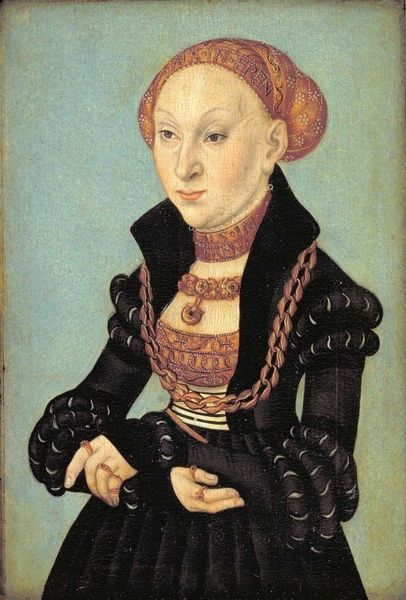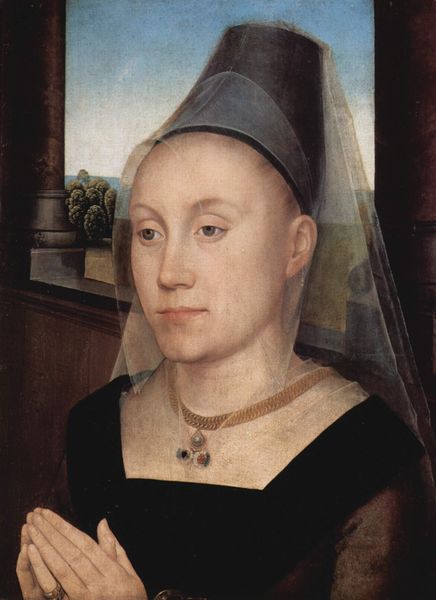
Portrait of Mary Wotton, Lady Guildenford 1527
0:00
0:00
hansholbeintheyounger
Kunstmuseum Basel, Basel, Switzerland
painting, oil-paint
#
portrait
#
portrait
#
painting
#
oil-paint
#
history-painting
#
northern-renaissance
#
realism
Dimensions: 80 x 65 cm
Copyright: Public domain
Curator: Painted in 1527, this is Hans Holbein the Younger’s "Portrait of Mary Wotton, Lady Guildenford," currently residing at the Kunstmuseum Basel. Oil on panel, a striking example of Northern Renaissance portraiture. Editor: First thing that jumps out at me is that steady, unwavering gaze. She's not messing around, is she? Stern, yet there's a real sense of inner life behind those eyes. The textures though – seriously opulent fabrics! Curator: Holbein was a master of capturing social standing, wouldn’t you say? Note the architectural details in the background, and the book; all carefully staged signifiers of status and education for women in courtly life. These details tell a story about power, literacy and how aristocratic identity was constructed. Editor: Totally, there’s something unsettling about that controlled precision. The pillar with the little sculpture, the neat ivy… I mean, beautiful rendering but does anyone *really* stand like that? Curator: Holbein wasn't just making art; he was participating in, and also solidifying, a particular cultural project that emphasized hierarchy. Portraiture like this served a vital function. Editor: True, almost like propaganda. Still, I bet she had way more complexities and quirks than Holbein was paid to reveal. Like, what’s the juiciest bit of gossip Lady Guildenford was dying to tell someone after this portrait? Or does her serious attitude means she can be fun to crack? Curator: Exactly! It’s not just a pretty picture; it's an archive loaded with data concerning gender dynamics, court politics, the culture of the period. Editor: And even more interesting that you say, is a challenge, I would dare to say! Curator: She seems unassailable here, due to all this armor, even when some more private and human stuff shines through in an unperfect world of the 16th Century. Thank you for your ideas! Editor: Definitely gives you a lot to think about. See you in the next one!
Comments
No comments
Be the first to comment and join the conversation on the ultimate creative platform.
